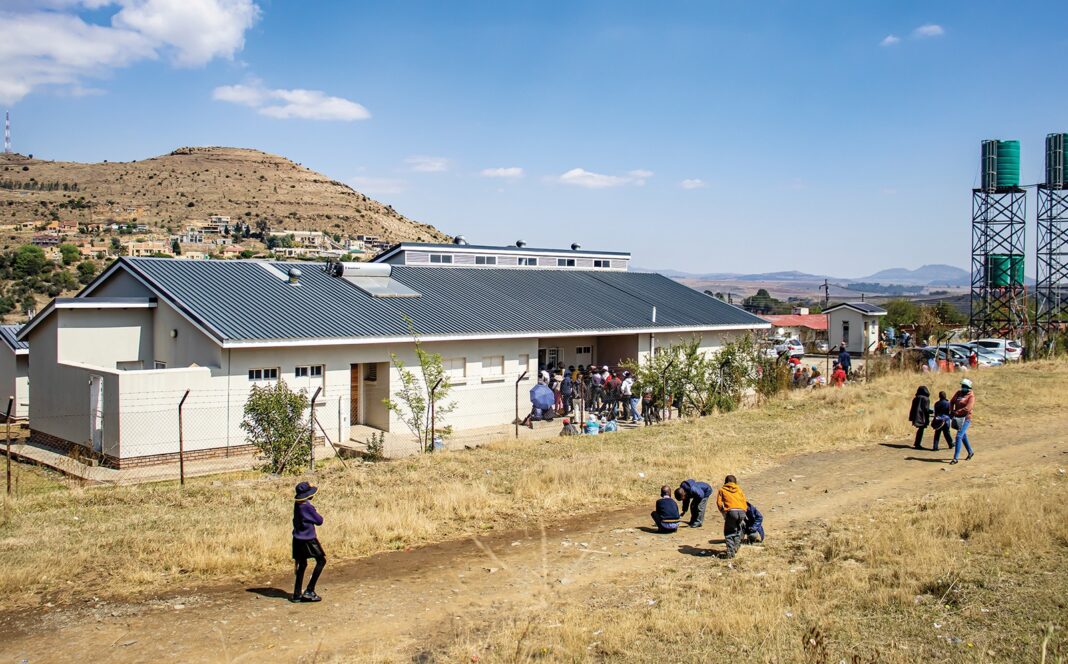By ‘Majirata Latela
The precarious situation of Basotho entrepreneurs once again takes centre stage after it emerged that service providers contracted by the Lesotho Millennium Development Authority (LMDA) are up in arms over perpetually delayed payments which has seen them struggle to pay salaries of their employees.
LMDA is responsible for the maintenance of health facilities and Millennium Challenge Corporation Compact issues. Under maintenance, there are four areas, namely, Environment and Waste Management (EWM), Soft Facilities Management (SFM), Hard Facilities Management (HFM), and, Information & Communications Technology management. Under Compact issues, the LMDA deals with the Development of Compact II and coordination of strategies for sustainability of Compact I Investments.
The workers complain that they sometimes go for three to four months without receiving their monthly salaries. This, they say, frustrates them as they have responsibilities to take care of.
One of the employees of the company that provides cleaning services at Mokhotlong hospital who asked to remain anonymous told this publication that many of the workers are based in town where live in rented houses.
“We have not received salaries since June this year. Some of us have families to take care of. We need food and cosmetics every day to make it to work but we are unable to afford these and end up drowning in debt. We owe landlords and we sometimes have no choice but to resort to loan sharks.
“Some of us sometimes go days without proper meals because of the non-payment of salaries. At times we are only paid a portion of the money we are owed.
“We therefore plead with those concerned to pay us on time so that we can be able to work without stressing over when we will get paid. It is really frustrating to not get paid on time and that affects our work negatively,” she said.
Responding to the allegations, LMDA’s Chief Executive Officer, Keketso Chalatse said LMDA acknowledged cognizance of the fact that service providers are not paid on time and are as a result unable to meet their obligations to their employees. He said this has been going on for a year now.
Chalatse said LMDA has engaged at least 150 contractors across the country to do the above-mentioned work.
He explained that for LMDA to pay these contractors, the government’s ministry of finance disburses funds to LMDA to finance its projects and honour its financial obligations to service providers.
“For quite a long time now, we have not been able to pay contractors in a satisfactory manner because the government has not been giving us enough money. We have been getting very little money from government and that means we are unable to pay all the contactors.
“We are forced by circumstances to pay them a certain portion of the money we owe them and sometimes we go for months without paying them. If we can’t pay contractors then they will also not be able to pay their staff and in turn that will negatively affect their performance at work.
“If we can’t pay a contractor who is responsible for communications, that means sometimes the contractor will have no choice but to cut off communication. Imagine if a nurse at a far-away clinic needs to communicate with a doctor at a hospital for an emergency and there is no means to communicate. That puts the life of patients in jeopardy,” he said.
He added: “Also, we have contractors who transport patients. So, if transport becomes a challenge, patients may die if there is no transport to ferry them from a clinic to a hospital for surgery. All operations at a health facility are interlinked and that makes all of them important.”
Chalatse said LMDA has had numerous meetings with the responsible ministries in a bid to address the challenge on non-payment, and he has reason to believe government could be experiencing financial problems.
According to the Central Bank of Lesotho, Lesotho recorded a Government Debt to GDP of 54.70 percent of the country’s Gross Domestic Product in 2021 taking Lesotho’s Public debt on an upward trajectory.
The fiscal deficit was expected to narrow to 3.3 percent of Gross Domestic Product (GDP) in 2020-21. Public debt was expected to increase to 52.7 percent and 53.1 percent in 2020 and 2021, respectively, mainly driven by government investment projects.
The Lesotho Chamber of Commerce (LCCI) has previously decried the extent and impact of government’s non-payment of Basotho service providers, as it proclaimed that the debt had gone up to M1.6 billion from M600 miilion in 2016-2017.
The ministry of finance had also admitted that the government owed Basotho service providers in excess of M1 billion in unpaid bills.
LCCI’s Technical Committee Member responsible for recovering outstanding government payments, Nthako Sekome, told theReporter in 2020 that they had been grappling with this issue since August 2019 to prevent Basotho businesses from dying.
“LCCI as a supporter of all businesses, decided that if its members are complaining about non-payment, it means the entire business sector is in danger of extinction and something needs to be done to rescue the situation.
“We then formed a technical team which would engage all relevant stakeholders about the matter, regardless of whether they are creditors affiliated to LCCI or not.
“According to our records, M1.6billion is the highest amount that government has ever owed businesses. We are worried that instead of going down, the debt keeps accumulating. Government enjoys the services that the private sector offers but fails to pay us with the same smile,” Sekome lamented.
Meanwhile, the Government Secretary Lerotholi Pheko recently issued a notice of measures to contain expenditure and overdue payments, for ministries, department and agencies effective from September 13 2022.
Among other measures, Pheko indicated that all ministries should submit by September 20 2022 all the domestic arrears report which include a list of outstanding payment by year, of contracts (Relevant page showing commitments of both parties), invoices relating to the 2021/2022 and all the years preceding the 2021/22.









